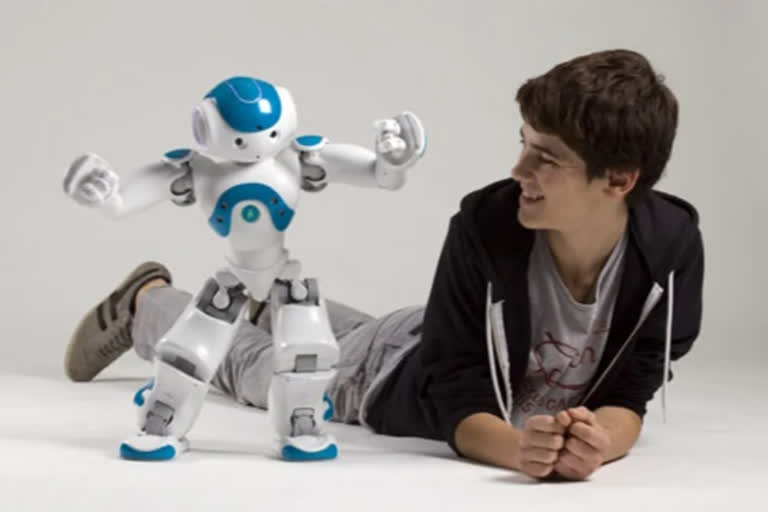Cambridge [UK]: A recent study revealed that robots may be more effective than parent-reported or self-reported tests in diagnosing mental health disorders in youngsters. A team of roboticists, computer scientists and psychiatrists from the University of Cambridge carried out a study with 28 children between the ages of eight and 13 and had a child-sized humanoid robot administer a series of standard psychological questionnaires to assess the mental wellbeing of each participant.
The children were willing to confide in the robot, in some cases sharing information with the robot that they had not yet shared via the standard assessment method of online or in-person questionnaires. This is the first time that robots have been used to assess mental well-being in children. The researchers say that robots could be a useful addition to traditional methods of mental health assessment, although they are not intended to be a substitute for professional mental health support. The results will be presented today (1 September) at the 31st IEEE International Conference on Robot & Human Interactive Communication (RO-MAN) in Naples, Italy.
During the COVID-19 pandemic, homeschooling, financial pressures, and isolation from peers and friends impacted the mental health of many children. Even before the pandemic, however, anxiety and depression among children in the UK have been on the rise, but the resources and support to address mental well-being are severely limited.
Professor Hatice Gunes, who leads the Affective Intelligence and Robotics Laboratory in Cambridge's Department of Computer Science and Technology, has been studying how Socially-Assistive Robots (SARs) can be used as mental well-being 'coaches' for adults, but in recent years has also been studying how they may be beneficial to children.
"After I became a mother, I was much more interested in how children express themselves as they grow, and how that might overlap with my work in robotics," said Gunes. "Children are quite tactile, and they're drawn to technology. If they're using a screen-based tool, they're withdrawn from the physical world. But robots are perfect because they're in the physical world - they're more interactive, so the children are more engaged."
With colleagues in Cambridge's Department of Psychiatry, Gunes and her team designed an experiment to see if robots could be a useful tool to assess mental wellbeing in children. "There are times when traditional methods aren't able to catch mental well-being lapses in children, as sometimes the changes are incredibly subtle," said Nida Itrat Abbasi, the study's first author. "We wanted to see whether robots might be able to help with this process."
For the study, 28 participants between ages eight and 13 each took part in a one-to-one 45-minute session with a Nao robot - a humanoid robot about 60 centimetres tall. A parent or guardian, along with members of the research team, observed from an adjacent room. Prior to each session, children and their parent or guardian completed standard online questionnaire to assess each child's mental wellbeing. During each session, the robot performed four different tasks:
1) Asked open-ended questions about happy and sad memories over the last week;
